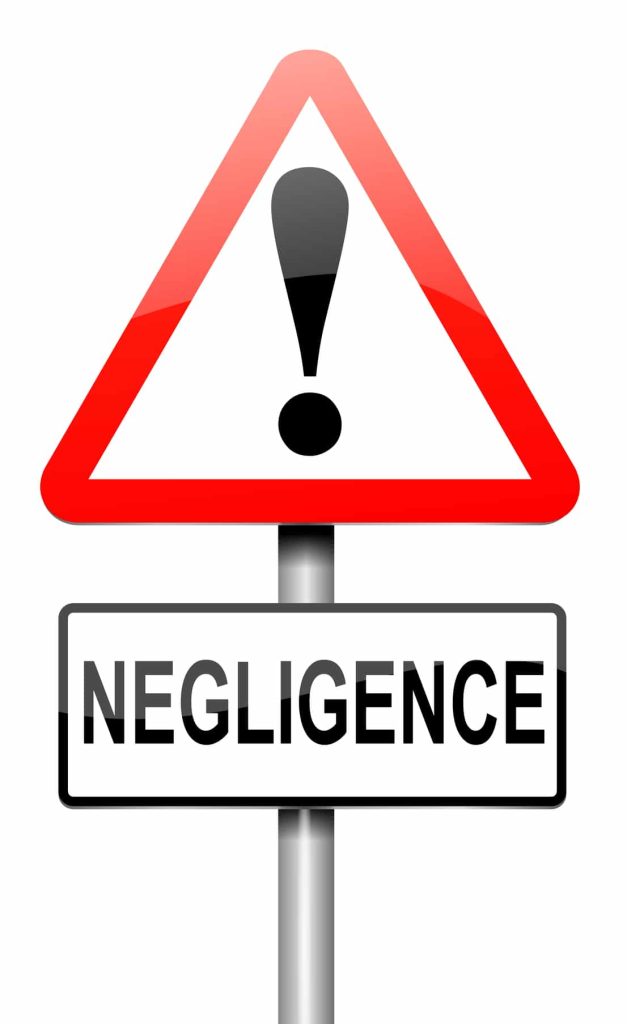- Free Consultation: 866-966-5240 Tap Here To Call Us
California Negligence Claims
Legal Definition of Negligence Under California Law
Negligence is the failure to use reasonable care to prevent harm to oneself or to others. A person can be negligent by acting or by failing to act. A person is negligent if he or she does something that a reasonably careful person would not do in the same situation or fails to do something that a reasonably careful person would do in the same situation. This is the definition of the law based upon the standard California jury instructions on the issue. To prove Negligence, one must usually show four elements as follows:
- DUTY: Did the defendant (person or entity against whom the claim is made) have a duty to act or not act in a certain way. Duties can be imposed by statutes or even common practices or even what a reasonable person should have done or not done given the same circumstances.
- BREACH: Did the defendant breach (or violate) their duty to act in a reasonable manner or not act.
- CAUSATION: Did the breach of the duty cause injury or damages to a plaintiff (party bringing the claim) including physical and emotional harm;
- DAMAGES: Did the plaintiff, in fact, suffer some monetary loss, physical or emotional injury as a result of the breach of a duty.
Ways to prove negligence under CA Law
Duty: California Civil Code section 1714 mandates the following: “Everyone is responsible, not only for the result of his or her willful acts, but also for an injury occasioned to another by his or her want of ordinary care or skill in the management of his or her property or person, except so far as the latter has, willfully or by want of ordinary care, brought the injury upon himself or herself.” This places a general duty on every person (with factors such as age, experience, expertise, etc.) to act reasonably and not cause harm to others. Most of the time, the “duty” element of negligence comes from this general concept. In addition, duties can come from “special relationships” (egs. A lifeguard’s duty to safeguard swimmers, a “common carrier’s” duty to transport passengers in a safe manner, a landlord‘s duty to maintain safe property for their tenants, a doctor’s duty to care for their patients in a manner commensurate with the standards of care for their profession and specialty, and many other same or similar relationships). Moreover, people can assume a legal duty by taking on certain responsibilities.
Breach: The breach of a legal duty is usually shown by an unreasonable act or a failure to act where a duty was imposed.
Causation: It is not enough to show a legal duty and a breach if the breach was not the “actual and proximate [or legal] cause” of personal injury or property damage. There can be many causes for someone being injured or killed but, so long as the act or failure to act was a “substantial factor” (defined by California law as “less than trivial”), causation can be proven. A jury or trier of fact may apportion or place a percentage of fault between different parties or causes. (See discussion on Comparative Negligence).
Damages: Someone may act in an unreasonable or even outrageous manner but, unless another person is actually harmed by the conduct, they cannot pursue a civil action. Damages can be physical harm, emotional distress, damage to real or personal property and/or the value of the loss of use of that property, lost income or earning potential, medical expenses, costs of future medical care, the loss of the ability to provide household services and any other damage that is subject to calculation and not merely speculative.
Common Types of Claims of Negligent Conduct Giving Rise to Liability
How is a California negligence claim defined? When it is shown that a “defendant” (person against whom a civil claim for damages is brought) has acted or failed to act as a reasonably prudent person would do and causes damages to the “plaintiff” (person bringing the claim), the defendant may have to pay for such damages. This can arise in the case of the operation of an automobile, motorcycle or truck, the maintenance of a property, or many other instances.
Why is it important to consult with a negligence attorney to determine if a claim can be pursued?
California is one of the largest states in the U.S. both by geographic size and population. Millions of people everyday interact on our states freeways, highways, on property owned or controlled by individuals or businesses, and in there day to day dealings with each other. Unfortunately, this leaves many interactions and happenings every single day in the Golden State where someone can be injured or even killed due to the conduct of another person. Sometimes, these incidents are mere “accidents” (e.g. an instance when someone was merely in the “wrong place at the wrong time” and nothing that anyone did or should have done would have prevented the tragedy. Other instances, however, can be analyzed to determine if a legal duty was owed, if that duty was breached and if that breach as the cause of damages that can be calculated and compensated for in the California Civil Justice System. An attorney skilled in analyzing negligence claims is the best person qualified to determine whether a legal action for monetary compensation may lie and what the value of damages should be.













